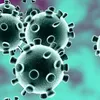Health Ministry issues advisory amidst rising numbers of 'black fungus' infections
The government notification answers questions around symptoms, how a diagnosis is done, and treatment for the infection that is appearing in some people who have recovered from COVID-19
Over the past few days, a rare but dangerous fungal infection, known as mucormycosis or “black fungus”, is being detected among Covid-19 patients. The condition impacts the skin, lungs and brain, and the rising number of cases has led the Ministry of Health and the Indian Council for Medical Research (ICMR) to issue an advisory saying "Mucormycosis, if uncared for, may turn fatal. Sinuses or lungs of such individuals get affected after fungal spores are inhaled from the air.”
Mucormycosis is believed to affect people with pre-existing health problems like diabetes or cancer or those on medication that lowers the body’s ability to fight germs and infection.

Over 60 cases of back fungus infections have been reported so far in India.
What are the symptoms?
The symptoms depend on where in the body the fungus is growing. Contact the doctor if you notice
- Pain and redness around eyes and/or nose
- Fever
- One-sided facial swelling
- Headache
- Nasal or sinus congestion
- Black lesions on nasal bridge or upper inside of mouth that quickly become more sever
- Cough
- Chest pain
- Abdominal pain
- Nausea and vomiting
- Gastrointestinal bleeding
- toothache,
- loosening of teeth,
- blurred or double vision with fever,
- skin lesion,
- Thrombosis
How is it diagnosed?
A mucormycosis diagnosis can be done by lab testing of tissue samples, MRI, or CT scans.
How can it be treated?
The treatment can range from antifungal medication to removal of the affected area.
Is it contagious?
No. It does not spread from one person to another via physical contact.
How many cases have been reported?
As of May 11, 2021, around 60 cases of mucormycosis have been reported in the country.
How can you guard against it?
- Monitor blood glucose level post Covid-19 recovery
- Use steroids only under medical advice
- Use sterilised water for humidifiers during O2 therapy
- Use antibiotics and anti-fungals cautiously
- Do not dismiss dark colouring on the bridge of the nose asas bacterial sinusitis
Edited by Diya Koshy George







